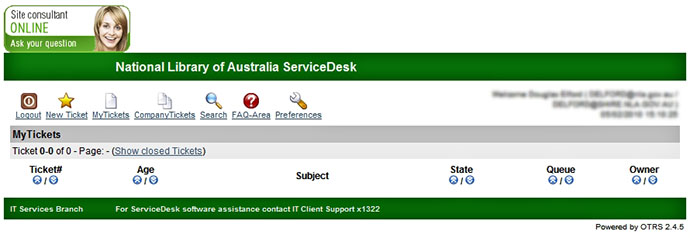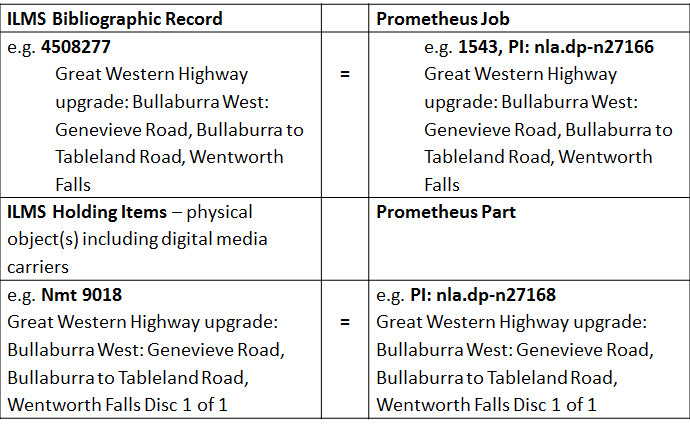
| Overview | Workflow | Cataloguing Procedures | Media | File Formats | System Details | Error Messages | Glossary | FAQ | About | |||||

Prometheus - Digital Preservation Workbench Reference Guide |
OverviewThe Digital Preservation
Workbench (DPW)
allows Library staff to associate Digital Preservation holdings to
Catalogue Bibliographic records in a semi-automated, scalable process
which includes transferring data from physical carriers [e.g. CD-ROMs
and DVD-ROMs] to the Digital Preservation area of the NLA's digital
mass storage system, helping to mitigate the major risks associated
with the physical carriers: deterioration of the media and obsolescence
of the technology required to access them for collection items. Digital
Preservation Workbench
information for a work includes:
In the current version of the DPW, you can
view Jobs and
their associated information only for Holdings that have been proposed
or ingested into the DPW. In later versions, you will be able
to
view existing arrangements of the information for the digital holding
and created/edit new arrangements for them within the DPW. The Prometheus Digital Preservation Workbench is an internal system, only accessible to Library staff. All Library staff can view information in DPW but to add content or update information, you need to be a 'registered user' and associated to a collection business unit. To process material in Prometheus you also require the installation of some additional software. If you do not have this access, or would like to have the software installed you will need to contact Digital Preservation via the Service Desk. All additional inquires and requests for assistance can also be lodged through the Service Desk. Select Digital Collecting Support as the Service Group!

Conceptual FrameworkAt the top of the hierarchy is the Bibliographic record for an item. There may be multiple physical holdings records associated with the collection item including books, journals, digital media carriers, etc. The conceptual
framework for Prometheus is that the user is creating an archive copy
of a the Holding’s digital component. A Call Number for a Bibliographic record may contain one or more digital media carriers as items within the one Holding record. Each of those individual digital carrier items become a 'Part' within the Prometheus Job. Such as floppy disks, PDFs, DVDs, etc. Prometheus
stores all these archive copies on the NLA's Digital Object Storage
System – DOSS for on-going managed storage. The
physical Holding for a Bibliographic record item may contain
one or more digital media carriers as items within the Holding record.
Each of those individual digital carrier items will become a 'Part'
within the Digital Holding. Each of these digital media carriers can of
course contain many digital files. Digital Preservation Workbench JobsEach Job within the DPW
system is associated
to one
Bibliographic collection item record. Where the record also has holdings of
digital material each
job is also associated to the appropriate Holdings record. If there are
multiple physical holdings for a bibliographic collection item, then a
different Job will need to be created to associate each additional
Holdings of digital material with the same Bibliographic collection
item record.
|

